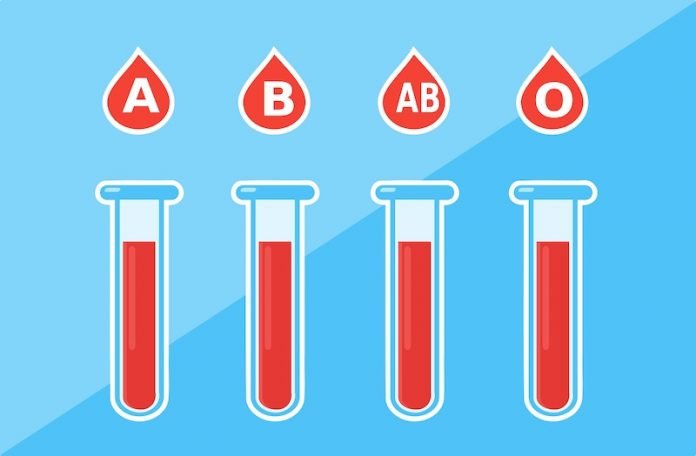
Many studies have found that blood type affects the risk of SARS-CoV-2 infection, with blood Type O being less susceptible and non-O blood types more susceptible.
In a recent study published in Epidemics, researchers found the most likely explanation is that COVID-19 infection behaves similarly to a blood transfusion.
The study is from the University of Kent and was done by Dr. Peter Ellis et al.
In the study, the team found that SARS-CoV-2 infection behaves similarly to a blood transfusion, and that infected patients are 2–3 times more likely to pass the virus on to someone for whom they are a compatible blood donor.
This explains why Type O people have a lower risk of infection. Just as they reject blood transfusions from non-O types, they may reject virus particles from a patient with non-O blood, thus escaping infection.
However, individuals with Type O blood are universal donors that can give blood to anyone.
Similarly once infected they are also able to infect others of any blood type. Conversely, those with Type A blood (the most common non-O type in the UK) are more likely to catch the virus and less likely to pass it on.
These transmission effects also mean that differences in the frequency of blood types may partly explain variations in epidemic severity worldwide, as countries with a wider diversity of blood groups will present natural barriers to virus circulation.
The team also examined whether it would be useful to prioritize vaccination based on blood type.
Crucially, they discovered that prioritizing either more infectious (Type O) or more vulnerable (Type A) people reduces the overall efficacy of the campaign to reduce infections.
The conclusion is that prioritizing any single blood type for vaccination is worse than choosing at random.
The team says the growing perception that “Type O means you’re low risk” is not a safe conclusion for the broad public.
Being Type O may mean you’re personally slightly safer, but you’re more of a risk to other people whilst you remain unvaccinated.
Sign up for our newsletter for more information about this topic.
If you care about COVID, please read studies about a universal antibody therapy for all COVID-19 variants, and how finger length could help predict severe COVID-19.
For more information about Covid, please see recent studies that new air filters could rapidly kill COVID-19 and other viruses, and results showing scientists find the cause of persistent breathlessness after COVID-19.
Copyright © 2022 Knowridge Science Report. All rights reserved.



